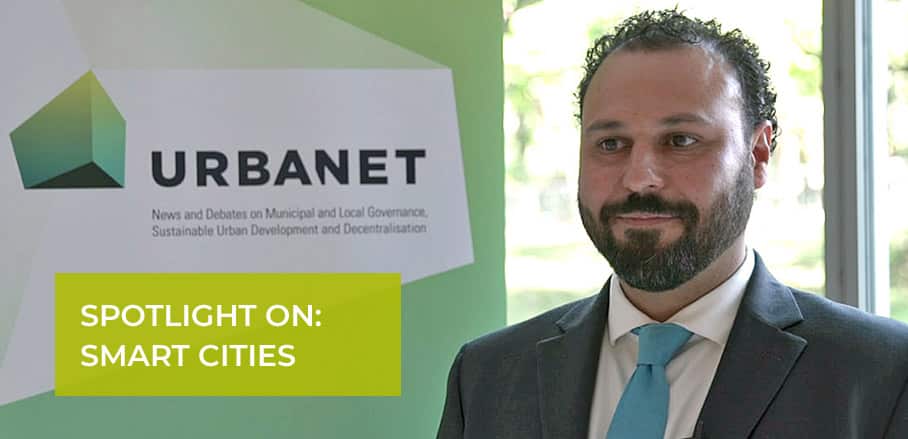“Being a smart city means making smart decisions” – interview with Mario Arauz from the city of Guadalajara
By URBANET
Known as a technology hub, Guadalajara is Mexico’s answer to Silicon Valley. No wonder then that the city is in the process of transforming itself into a smart city. URBANET talked to Mario Arauz, Director of Government Innovation and Intelligent Cities, about Guadalajara’s take on the smart city concept.
What does the smart City concept entail for you? And how does the city of Guadalajara make use of the concept?
Mario Arauz: For me, the smart city concept is not necessarily about large infrastructure or huge investments in technology. I think that’s often what people have in mind when they hear the term “smart city”. When I think about it, I picture a city making smart decisions regarding its development and coming up with creative solutions to urban challenges. Being smart also means making the most of the limited resources available. It is about improving processes and making public services more understandable and accessible to citizens. In my opinion, smart cities mainly use technology to facilitate and increase the interaction between citizens and their city government. Technology is always a good ally, a means to an end, but it should not dominate the debate on smart cities.
This is also the approach that we’re following in Guadalajara. At the moment, we have more than forty, what we call, digital transformation projects. For us, being a smart city ultimately means having an open government. Most of our smart solutions therefore revolve around this topic.
Why is Guadalajara focusing on open government?
Mario Arauz: In our view, it’s really important to make governance processes, especially in the city administration, more transparent for our citizens and to increase their level of participation. Citizens should know what is going on in their city.
I’ll give you an example. Guadalajara is currently in the process of transforming into a major metropolis. But instead of growing horizontally, the city is growing vertically. This means that instead of expanding outwards, Guadalajara is increasingly growing upwards. For urban developers and citizens, this trend poses a lot of questions: Where do I get construction permits for high-rise buildings? In which areas is this development allowed? How is the cultural heritage of the city being preserved? What will my neighbourhood look like in future? People should be able to easily access the information they need to answer their questions. So we developed an online platform called Visor Urbano that does just that. Using digital information and communication technologies in cases like this makes processes much more efficient. For our citizens and other urban stakeholders, the information is easily accessible and always up to date. For the city administration, it means being able to simplify processes and partly automate operations.
One of the main goals of the platform is to fight corruption in urban development. City maps and other geographical information, as well as the process of granting business and construction licenses, are available as open data to the public. So, citizens can, for example, check whether city development plans are being properly implemented or whether construction is taking place in an area where it is actually not allowed. They can also report any transgressions they see to the city authorities.
Increasing public participation seems to be important for Guadalajara. What other smart solutions are you applying to involve citizens in urban development processes?
Mario Arauz: Yes, that’s true. For example, instead of setting up a large network of sensors to monitor the city’s infrastructure, we ask citizens to install web applications or platforms that allow them to track what’s going on in the city. We invite them to participate and report to city officials any public infrastructure they see that needs to be fixed – for example, roads or street lighting. Mapa Guadalajara is an initiative that covers several municipal services, such as parking or waste management. Citizens can check whether the responsible city department is doing its job in providing and maintaining those services, and if anything’s amiss they can write a report via an app that goes straight to the relevant city department. We think that strengthening this kind of co-responsibility and encouraging citizens to care about their city is very important.
Guadalajara is considered a frontrunner in Latin America when it comes to smart city development. What do you think the main reasons are for this?
Mario Arauz: One reason is that we have a lot of smart people with an affinity for technology in Guadalajara. There is a very lively high-tech community in the Guadalajara’s metropolitan area and information technology plays a big role in the region’s economy. We have lots of international and national IT companies and manufacturers here. We also have several universities working in this field. Over the last few decades, the city region has established itself as a technology hub, and it can now build on that on its way to becoming a smart city.
